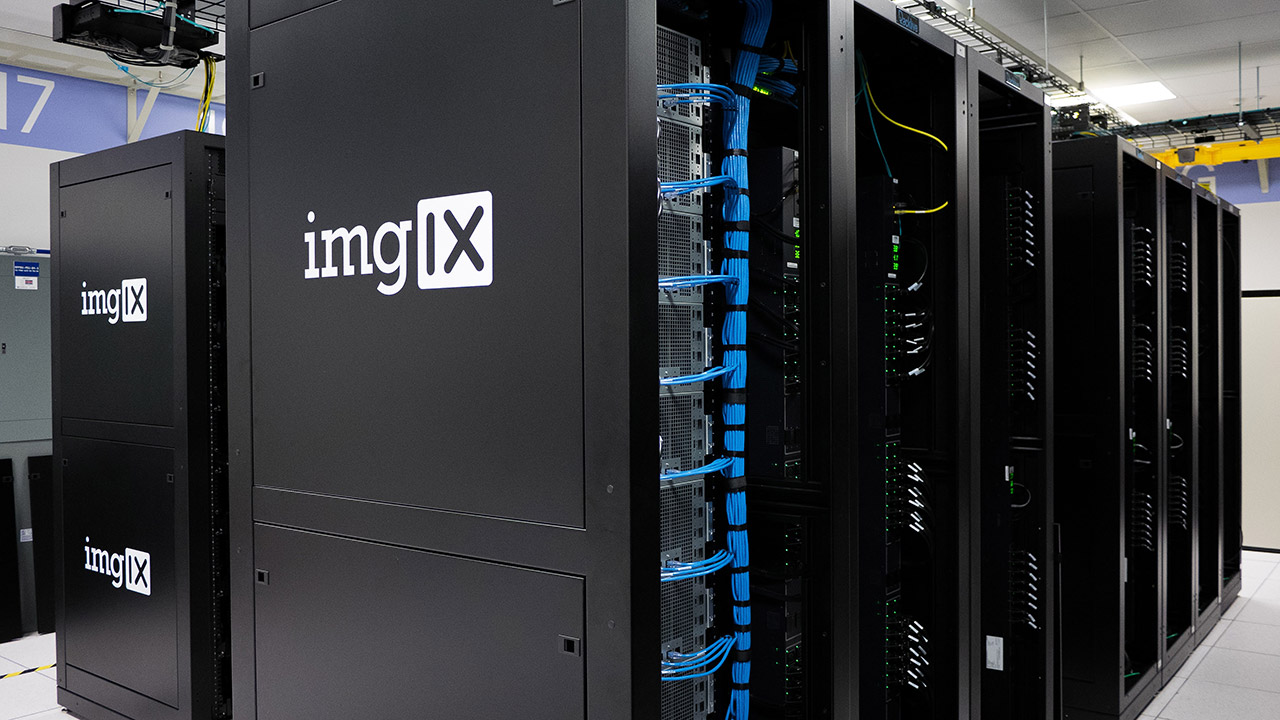In today’s digital age, cloud computing is essential, revolutionizing how we work and live. Whether you’re a business owner managing infrastructure or an individual seeking software solutions, cloud computing has you covered. From the cloud approach to one cloud service and data, there are various types of cloud computing services and cloud deployment models to choose from. Alibaba Cloud and IBM Cloud are just a few examples of third-party cloud service providers that offer a wide range of cloud technologies.
With public clouds, you can easily access computing resources and services over the internet. A hybrid cloud strategy allows you to combine two or more cloud services, creating a flexible and efficient cloud computing environment. On the other hand, private cloud services are maintained by the cloud provider and offer a secure and dedicated cloud computing infrastructure. Cloud computing stores and processes data, providing easy access to computing resources from anywhere. A hybrid cloud aims to integrate the benefits of different cloud deployment models, giving you the best of both worlds.
Whether you’re using a public cloud, private cloud, or a combination of both, the cloud computing stack and architecture ensure the efficient delivery of cloud services. In summary, cloud computing is a term often referred to as the cloud, and it encompasses various models and types of cloud computing.
Types of Cloud Computing Models
You should familiarize yourself with the different cloud computing models to better understand the benefits of cloud computing. There are four main types of cloud computing models: Infrastructure as a Service (IaaS), Platform as a Service (PaaS), Software as a Service (SaaS), and Function as a Service (FaaS).
In an IaaS model, the cloud provider offers virtualized computing resources such as servers, storage, and networking. This allows you to have complete control over the infrastructure and gives you the flexibility to scale as needed.
PaaS, on the other hand, provides a platform for developing, testing and deploying applications. The cloud provider manages the underlying infrastructure, allowing you to focus on your application development without worrying about hardware or software updates.
SaaS is a cloud computing service where users can access software applications online. The cloud provider hosts and manages the software; users can access it through a web browser or a client application. This eliminates the need for installation and maintenance on individual devices.
FaaS, or Function as a Service, is a cloud computing model that allows developers to create and deploy individual functions or code without managing the underlying infrastructure. In FaaS, the cloud provider manages the server and resource allocation, allowing developers to focus solely on writing and executing their code. This serverless approach provides a highly scalable and cost-effective solution, as resources are only allocated when the function is invoked. FaaS enables developers to build and deploy applications faster, as they can easily integrate and execute specific functions within their software architecture.
In addition to these models, there are different cloud deployments, such as public, private, and hybrid clouds. A public cloud is a third-party service accessible by multiple organizations or individuals over the Internet. On the other hand, a private cloud is dedicated to a single organization and offers more control and security. A hybrid cloud combines public and private clouds, benefiting organizations from both. Familiarizing yourself with these different cloud computing models and deployments will help you decide which cloud service and deployment model best suits your needs.

Overview of Infrastructure as a Service (IaaS)
Suppose you want to understand the benefits of cloud computing. In that case, it’s important to have an overview of Infrastructure as a Service (IaaS), which offers virtualized computing resources controlled by the cloud provider. With IaaS, you can easily scale up or down your computing resources based on your needs without the hassle of managing physical hardware. Let’s look at the different types of cloud computing services and how they fit into the cloud infrastructure.
| Deployment Model | Definition |
| Public Cloud | A type of cloud deployment where the cloud infrastructure is owned and operated by a third-party provider |
| Private Cloud | A type of cloud deployment where the cloud infrastructure is dedicated solely to a single organization |
| Hybrid Cloud | A cloud deployment strategy that combines both public and private cloud services to meet specific business needs |
In terms of cloud service models, there are three main types: IaaS, Platform as a Service (PaaS), and Software as a Service (SaaS). IaaS provides virtualized computing resources, while PaaS offers a platform for developing, testing, and deploying applications. SaaS, on the other hand, offers ready-to-use software applications that can be accessed through the Internet.
Exploring Platform as a Service (PaaS)
Let’s explore the benefits of using Platform as a Service (PaaS) and how it can enhance your organization’s cloud computing strategy. PaaS, as a cloud service, provides a cloud platform that allows developers to build, deploy, and manage applications without worrying about the underlying cloud infrastructure. By leveraging PaaS, your organization can focus on developing and innovating your cloud applications rather than spending time and resources managing the computing infrastructure.
PaaS offers several advantages. Firstly, it provides a scalable and flexible cloud environment, enabling you to scale your application as needed quickly. PaaS provides a simplified deployment process, allowing you to easily deploy your applications to the cloud platform. This streamlines the development cycle and reduces time-to-market.
Furthermore, PaaS provides a comprehensive computing infrastructure, including servers, storage, and networking, which the cloud service provider manages. This eliminates the need for your organization to maintain and manage the infrastructure, reducing operational costs and complexity.
Additionally, PaaS enables seamless integration with other cloud services, such as databases, messaging systems, and analytics tools. This allows you to leverage the full potential of the cloud computing stack and easily connect your applications with cloud data and services.
Understanding Software as a Service (SaaS)
Once you understand Software as a Service (SaaS), you’ll see how it simplifies software access and maintenance. SaaS is a cloud computing model where software is provided as a service over the internet. Instead of installing and maintaining software on your computer, you can access it through a web browser, eliminating the need for complex installations and updates. SaaS operates on a subscription model, where users pay a recurring fee to access and use the software. This service model allows for flexibility and scalability, as users can easily add or remove subscriptions based on their needs.
In the table below, you can see the benefits and considerations of using SaaS:
| Benefits of SaaS | Considerations of SaaS |
| Easy access from any device with an internet connection | Dependence on the availability and reliability of the internet |
| Automatic software updates | Limited customization options |
| Scalability and flexibility | Data security concerns |
| Reduced IT infrastructure costs | Dependence on the cloud provider for support |

The Rise of Function as a Service (FaaS)
You should explore the benefits and considerations of using Function as a Service (FaaS) as it offers a scalable and flexible approach to serverless computing. FaaS is a cloud computing model where providers manage and run the infrastructure to execute and scale individual functions. With FaaS, you can focus on writing and deploying code without worrying about managing servers or infrastructure.
One of the main advantages of FaaS is its ability to handle workload spikes and scale automatically. When an event triggers a function, the cloud provider dynamically allocates resources to execute it and then releases them when the execution is complete. FaaS is highly efficient and cost-effective, as you only pay for the execution time and resources.
Furthermore, FaaS enables rapid development and deployment of applications. Since functions are modular and independent, you can easily update or replace individual tasks without affecting the entire application. This allows for faster iteration and continuous delivery.
It’s important to consider the limitations of FaaS as well. Functions in FaaS are stateless, meaning they don’t retain any data between invocations. This can be a challenge when dealing with applications that require persistent storage or complex state management.
Exploring Different Cloud Deployment Models
Take a closer look at the various cloud deployment models to understand their differences and benefits. There are several deployment models to consider for different types of cloud computing. The major cloud deployment models include private, public, and hybrid cloud computing.
Private cloud refers to a cloud approach where the services and infrastructure are dedicated to a single organization. This cloud deployment type offers enhanced security and control over data, but it requires significant investment in hardware and maintenance.
On the other hand, a public cloud is a third-party cloud service accessible to multiple organizations. Public cloud providers offer scalable resources and cost-effective solutions, making it an attractive choice for many businesses.
Hybrid cloud computing is a combination of both private and public cloud deployment models. It allows organizations to take advantage of the benefits of both models, such as increased flexibility and scalability. For example, sensitive data can be stored on a private cloud, while less critical data can be stored on a public cloud.
Understanding the different cloud deployment models is crucial for selecting your organization’s right cloud computing deployment. Whether you choose private, public, or hybrid cloud, each model has benefits and considerations. You can make an informed decision aligning with your business goals by evaluating your needs and requirements.
Protect Your Business with ZZ Servers’ IT and Cybersecurity Services
For over 17 years, ZZ Servers has provided IT services and cybersecurity solutions to help organizations like yours operate efficiently and securely. Contact ZZ Servers today to discuss your needs without leaving your business vulnerable.
Our team of experts can assess your current IT infrastructure and cybersecurity protocols to identify any vulnerabilities. We’ll then work with you to implement robust solutions tailored to your business requirements and budget.
Benefit from proactive monitoring, data protection, compliance auditing, and more with ZZ Servers’ managed IT and security services. We utilize cutting-edge technologies and follow industry best practices to keep your systems up-to-date and your data safe.
Don’t wait until it’s too late! Call ZZ Servers at 800-796-3574 to schedule a consultation with our IT and cybersecurity professionals. We serve small and mid-sized organizations throughout Virginia.
Let our experience work for you – contact ZZ Servers today!
Conclusion
As you navigate through the vast landscape of cloud computing services, you’ll come to realize the power and potential they hold. Each model offers unique value, from the flexibility of Infrastructure as a Service (IaaS) to the convenience of Software as a Service (SaaS). The various deployment models, such as public, private, and hybrid clouds, further enhance your options. Embrace the cloud and unlock a world of limitless possibilities that will revolutionize how you work and live. Let the sky be your limit.
Frequently Asked Questions
What Are the Benefits of Using Serverless Computing in Cloud Computing Services?
Using serverless computing in cloud computing services provides numerous benefits. It allows you to focus on writing code without worrying about infrastructure management, scales automatically and reduces costs by only paying for actual usage.
How Does a Hybrid Cloud Deployment Model Differ From a Public Cloud Deployment Model?
A hybrid cloud deployment model differs from a public cloud deployment model because it combines both private and public cloud services, allowing you to have more control over your data while still benefiting from the scalability and flexibility of the public cloud.
Can You Explain the Concept of a Private Cloud and Its Use in Cloud Computing?
A private cloud is a type of cloud deployment model that is dedicated to a single organization. It offers greater control and security, allowing you to customize and manage your cloud infrastructure.
What Are the Different Service Models in Cloud Computing and How Do They Differ From Each Other?
The different service models in cloud computing include IaaS, PaaS, and SaaS. IaaS provides infrastructure, PaaS offers platforms, and SaaS delivers software. Each model differs in the level of control and responsibility you have.
Is It Possible to Switch Between Different Types of Cloud Deployment Models Without Any Disruptions to the Services?
Yes, you can switch between different types of cloud deployment models without any disruptions to the services. It allows you to easily scale your infrastructure, optimize costs, and choose the most suitable model.


